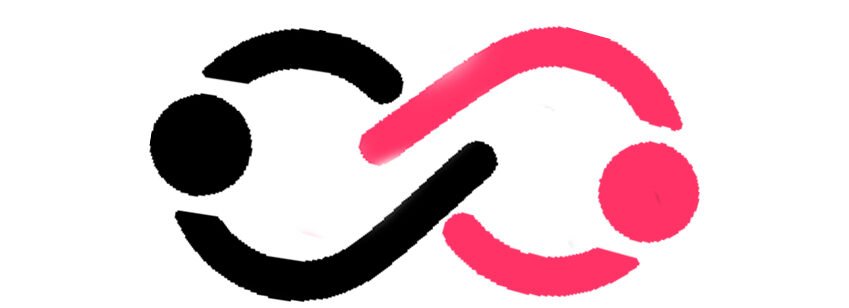In today’s healthcare environment, elderly patients face numerous challenges when receiving coordinated, high-quality care. F LuminaCare is a physician group dedicated to addressing these challenges by unifying, coordinating, and managing healthcare for geriatric patients both in nursing facilities and at home. The organization’s mission is to prevent clinical setbacks using a disruptive, data-driven model that builds essential bridges between patients and their care entities.
By focusing on prevention, leveraging bedside data, and improving communication among healthcare providers, F LuminaCare is setting a new standard in geriatric care. This article explores LuminaCare’s innovative approach, key services, and the impact they are making in the healthcare industry.

1. The Current Landscape of Geriatric Healthcare
1.1 Challenges Facing Geriatric Healthcare
The geriatric population is growing, and healthcare systems are struggling to keep up with the increasing demand. Among the most pressing challenges are:
- Staffing shortages in nursing facilities: Many care facilities operate with minimal staff, leading to reduced quality of care and burnout among healthcare workers.
- Lack of access to coordinated care: Elderly patients often rely on fragmented healthcare systems, which results in poor communication among providers, increasing the risk of clinical setbacks.
- Impact of fragmented healthcare systems on patient outcomes: Disjointed care can lead to medication errors, missed follow-ups, and unnecessary hospitalizations.
1.2 The Need for Unified and Coordinated Care
Given these challenges, there is a clear need for a holistic approach in managing the complex needs of geriatric patients. Coordinated care ensures that patients receive timely interventions and seamless transitions between care settings. This approach includes:
- Integration across multiple touchpoints: Nursing facilities, hospitals, and home care must work together to ensure patients receive continuous care.
- Collaboration among providers: Improved communication between physicians, nurses, specialists, and family members helps manage conditions more effectively, reducing complications.
2. F LuminaCare’s Disruptive Healthcare Model
2.1 A Vision for Prevention
F LuminaCare follows the philosophy that “an ounce of prevention is worth a pound of cure.” By focusing on preventive care, the organization dramatically reduces hospitalizations and enhances the quality of life for elderly patients. Their model includes:
- Careful monitoring: Regular health checks identify potential risks before they escalate.
- Effective communication: Continuous updates between care teams ensure all providers are informed about a patient’s health status.
This approach has been validated by several success stories, where early interventions have resulted in fewer hospital visits and improved patient outcomes.
2.2 Data-Forward Healthcare: Using Data to Transform Care
LuminaCare’s model is built on the power of data. From day one, they recognized the value of bedside data in revolutionizing geriatric care. By using advanced data analytics, LuminaCare can:
- Identify early warning signs: Predictive algorithms detect health risks, allowing care teams to take proactive measures.
- Enhance patient management: Detailed data insights enable better decision-making, leading to customized care plans for each patient.
Data-driven strategies have significantly reduced complications and hospitalizations, leading to better outcomes and higher patient satisfaction.
2.3 Building Bridges Between Patients and Care Entities
F LuminaCare plays a pivotal role in connecting patients, families, and healthcare providers. Their model promotes seamless care experiences by:
- Mediating between care entities: They facilitate communication between doctors, nursing staff, and home care providers, ensuring everyone is on the same page.
- Providing continuity of care: This is particularly important for patients moving between hospitals, nursing homes, and home settings. Clear communication reduces the risk of medical errors and supports better long-term outcomes.
3. Key Services Offered by F LuminaCare
3.1 After-Hours Telehealth
Access to healthcare can be a challenge for elderly patients, especially during off-hours or in remote locations. F LuminaCare’s after-hours telehealth service bridges this gap by providing:
- 24/7 access to care: Patients can connect with physicians via telehealth platforms, ensuring they receive timely attention, no matter the time or place.
- Preventing unnecessary hospital visits: Many minor issues can be addressed through telehealth, reducing the strain on emergency rooms.
3.2 Transitional Care Services
Transitions between care settings—such as moving from a hospital to a nursing home—are critical periods for geriatric patients. LuminaCare’s transitional care services are designed to:
- Ensure smooth transitions: Their team coordinates with healthcare providers to ensure patients receive appropriate follow-up care.
- Prevent readmissions: By closely monitoring patients during these transitions, LuminaCare reduces the likelihood of complications that could lead to rehospitalization.
3.3 Chronic Care Management
Many elderly patients suffer from chronic conditions that require ongoing management. LuminaCare’s chronic care management services include:
- Coordinated disease management: By working with multiple providers, LuminaCare creates comprehensive care plans that address all of a patient’s health needs.
- Improved outcomes: Coordinated care helps prevent the worsening of chronic conditions, leading to better long-term health outcomes.
3.4 Remote Patient Monitoring
Using technology to monitor patients from a distance has become a game-changer in geriatric care. Remote patient monitoring (RPM) offers:
- Real-time health insights: Devices track vital signs and other health data, providing immediate feedback to healthcare teams.
- Proactive care adjustments: Based on RPM data, care teams can adjust treatments in real time, reducing the risk of complications.
3.5 Behavioral Health Integration
Mental health is a critical component of geriatric care, yet it’s often overlooked. LuminaCare integrates behavioral health into its care model to ensure:
- Holistic patient care: Addressing both physical and mental health improves overall well-being.
- Specialized care for cognitive decline: LuminaCare provides services for patients suffering from conditions like dementia and depression, helping them manage these conditions more effectively.
3.6 Comprehensive Care Coordination
At the heart of LuminaCare’s approach is comprehensive care coordination. This service ensures that:
- All aspects of patient health are monitored: From medications to physical therapy, LuminaCare coordinates care across all providers.
- Patients receive personalized care plans: Each patient’s unique needs are met, ensuring better outcomes and a higher quality of life.
4. Leadership and Innovation at F LuminaCare
4.1 Leading with Clinical Expertise
F LuminaCare is led by some of the nation’s foremost healthcare experts and clinical innovators. Their leadership team:
- Brings decades of experience: This expertise is critical in driving their commitment to improving geriatric care.
- Guides the company’s vision: Under their guidance, LuminaCare has developed innovative care models that push the boundaries of traditional healthcare.
4.2 Commitment to Continuous Improvement and Innovation
LuminaCare’s success is built on its commitment to innovation. They continuously refine their services, such as:
- Telehealth advancements: New technologies are integrated into their telehealth services to improve accessibility and care quality.
- Prescription management innovations: Ensuring patients have the medications they need when they need them reduces complications.
By staying at the forefront of healthcare trends, LuminaCare remains a leader in geriatric care.
5. F LuminaCare’s Mission and Values
5.1 Mission: “Take Good Care, and Don’t Let Go”
At its core, LuminaCare’s mission is to provide unwavering care for every patient. Their promise is to:
- Shine a spotlight on each patient’s evolving needs: As patients move through different stages of life, LuminaCare’s services adapt to meet their changing needs.
5.2 The “Spotlight” Approach to Patient Care
LuminaCare tailors its services to each patient, focusing on their unique health challenges. This approach:
- Ensures personalized care: Each patient’s care plan evolves based on their health status and needs.
- Case studies demonstrate success: Several patients have experienced significant improvements in their health thanks to this individualized approach.
6. The Impact of F LuminaCare’s Model on the Healthcare Industry
6.1 Reducing Hospitalizations and Enhancing Patient Outcomes
LuminaCare’s preventive approach has led to impressive results, including:
- Fewer hospital readmissions: Early interventions and coordinated care reduce the need for emergency hospital visits.
- Improved patient satisfaction: Patients feel more supported and confident in their care plans.
6.2 Overcoming Staffing Shortages and Resource Limitations
By leveraging technology and improving care coordination, LuminaCare helps healthcare providers do more with less. Their model:
- Relieves strain on staff: By reducing the burden on nurses and doctors, LuminaCare improves both patient and provider satisfaction.
- Maximizes healthcare resources: Data-driven care models allow providers to allocate resources more efficiently.
6.3 Shaping the Future of Geriatric Care
F LuminaCare is not just improving today’s healthcare system—they are also laying the foundation for the future. Their model:
- Can serve as a blueprint for transforming geriatric care.
- Sets the stage for continued innovation in data-driven, patient-centered care.
Conclusion
F LuminaCare is revolutionizing geriatric care with its data-driven, coordinated healthcare solutions. By focusing on prevention, improving communication among providers, and utilizing cutting-edge technology, LuminaCare is enhancing patient outcomes and reducing pitalizations. Their leadership, commitment to innovation, and patient-first approach make them a leader in elderly care.
FAQs
- What services does F LuminaCare offer? F LuminaCare provides services such as after-hours telehealth, transitional care, chronic care management, remote patient monitoring, behavioral health integration, and comprehensive care coordination.
- How does F LuminaCare use data in patient care? They leverage bedside data and advanced analytics to identify risks early, enabling proactive care interventions and improving patient outcomes.
- Why is coordinated care important for geriatric patients? Coordinated care ensures that elderly patients receive continuous, holistic care, reducing the risk of complications and improving their quality of life.
- What is F LuminaCare’s approach to preventing hospitalizations? Their “ounce of prevention” approach focuses on early monitoring, timely interventions, and seamless communication between care teams.
- How does LuminaCare integrate behavioral health into their services? They include mental health care as part of their comprehensive care plans, addressing both physical and emotional well-being for elderly patients.



